
Enchanting Old Market Area of Siem Reap
Discover the vibrant Old Market Area in Siem Reap, a cultural hub filled with lively markets, charming cafes, and a bustling nightlife scene.
Exploring the Old Market Area in Siem Reap is like stepping into Cambodia's vibrant cultural heart. This bustling neighborhood is an eclectic blend of traditional and modern influences, offering visitors a rich tapestry of experiences. The area is famous for its lively marketplaces, where you can find everything from fresh produce and exotic spices to handmade crafts and souvenirs. The aroma of street food and the hum of vendors create an atmosphere that is both exciting and welcoming. Wander through the narrow streets and you'll encounter an array of charming cafes, boutique shops, and local eateries. Each corner you turn reveals a new hidden gem, whether it's a quaint art gallery or a serene temple. The Old Market itself, known locally as Phsar Chas, is a must-visit. Here, you'll find an authentic Cambodian shopping experience, where bargaining is not just expected but encouraged. It's the perfect place to pick up unique gifts or sample local delicacies. In the evenings, the Old Market Area transforms into a lively nightlife hub. Colorful lights illuminate the streets, and the sound of live music fills the air. Pubs and bars offer a chance to unwind and mingle with both locals and fellow travelers. Whether you're looking for a quiet drink or a night of dancing, there's something for everyone. The neighborhood's friendly vibe and cultural richness make it an unforgettable part of any trip to Siem Reap.
Local tips in Old Market Area
- Bargain at the Old Market. Negotiating prices is part of the shopping experience.
- Try the local street food. It's both delicious and inexpensive.
- Visit in the evening for a different atmosphere and lively nightlife.
- Wear comfortable shoes. The streets are narrow and best explored on foot.
Enchanting Old Market Area of Siem Reap
Exploring the Old Market Area in Siem Reap is like stepping into Cambodia's vibrant cultural heart. This bustling neighborhood is an eclectic blend of traditional and modern influences, offering visitors a rich tapestry of experiences. The area is famous for its lively marketplaces, where you can find everything from fresh produce and exotic spices to handmade crafts and souvenirs. The aroma of street food and the hum of vendors create an atmosphere that is both exciting and welcoming. Wander through the narrow streets and you'll encounter an array of charming cafes, boutique shops, and local eateries. Each corner you turn reveals a new hidden gem, whether it's a quaint art gallery or a serene temple. The Old Market itself, known locally as Phsar Chas, is a must-visit. Here, you'll find an authentic Cambodian shopping experience, where bargaining is not just expected but encouraged. It's the perfect place to pick up unique gifts or sample local delicacies. In the evenings, the Old Market Area transforms into a lively nightlife hub. Colorful lights illuminate the streets, and the sound of live music fills the air. Pubs and bars offer a chance to unwind and mingle with both locals and fellow travelers. Whether you're looking for a quiet drink or a night of dancing, there's something for everyone. The neighborhood's friendly vibe and cultural richness make it an unforgettable part of any trip to Siem Reap.
Iconic landmarks you can’t miss
Angkor Wat
Explore Angkor Wat, the magnificent temple city, a UNESCO World Heritage Site and a symbol of Cambodia's rich Khmer history and architecture.
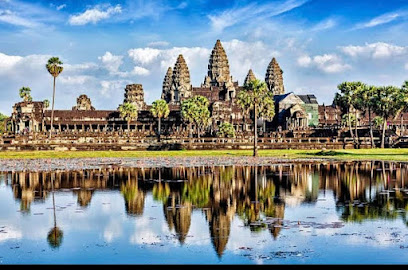
Ta Prohm Temple
Explore Ta Prohm, the Tomb Raider Temple: where nature and ancient architecture intertwine in a mesmerizing dance of history and beauty.
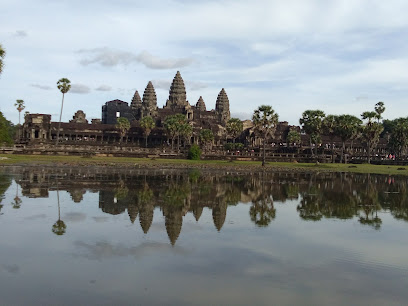
Siem Reap Art Center Night Market
Discover local art, handicrafts, and souvenirs at this vibrant night market on the Siem Reap River, a lively hub of culture and commerce.
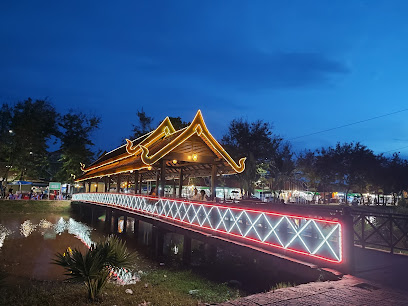
Pub Street
Experience the vibrant nightlife and cultural richness of Pub Street in Siem Reap, where every night is a celebration of food, fun, and friendship.
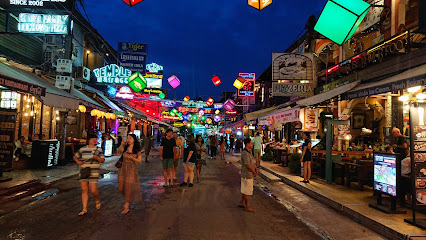
Prasat Preah Khan
Explore Prasat Preah Khan, a sprawling 12th-century temple complex that once served as a royal city and spiritual center in the Angkor region.
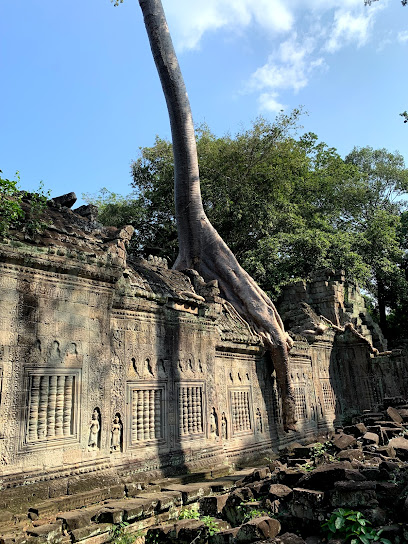
Artisans Angkor
Discover traditional Khmer crafts at Artisans Angkor in Siem Reap, supporting local artisans and preserving Cambodian heritage.
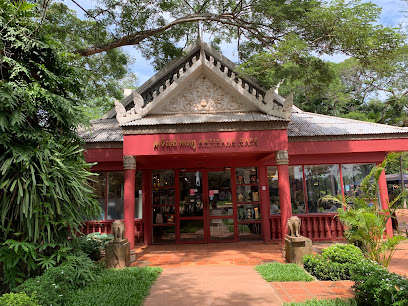
Made in Cambodia Market
Discover authentic Cambodian handicrafts at Siem Reap's Made in Cambodia Market. Support local artisans and find unique, ethically sourced souvenirs.
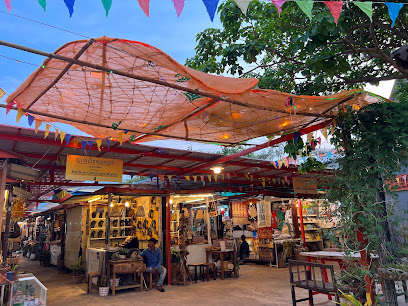
Old Market
Experience the heart of Siem Reap at the Old Market: a vibrant mix of local shopping, souvenirs, and authentic Cambodian culture.
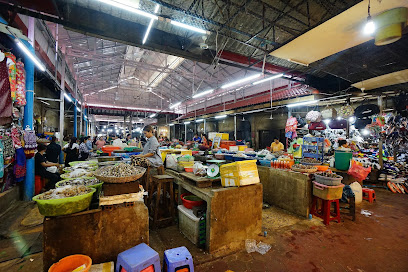
Old Market Bridge
Discover Siem Reap's charm at the Old Market Bridge: a vibrant hub connecting history, culture, and the heart of Cambodian life with scenic views.
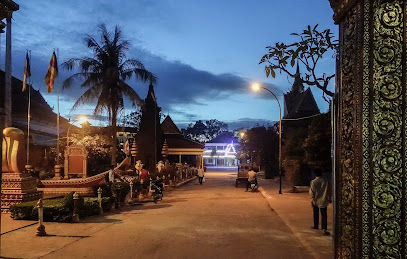
Vishnu Circle
Discover the historical and spiritual heart of Siem Reap at Vishnu Circle, a landmark showcasing Cambodian culture and heritage.
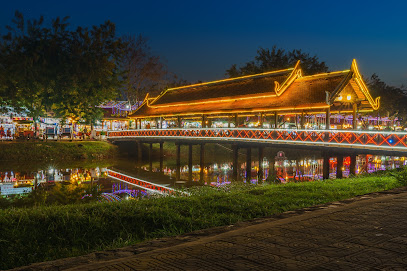
Unmissable attractions to see
Phare, The Cambodian Circus
Experience the magic of Phare, The Cambodian Circus in Siem Reap, where art, culture, and breathtaking performances unite.
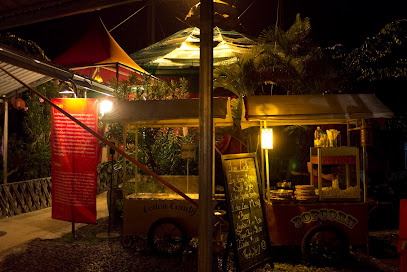
Angkor National Museum
Explore the Angkor National Museum for a captivating journey through the history and culture of the Khmer Empire in Siem Reap, Cambodia.

Pub Street
Experience the vibrant nightlife and culinary delights of Pub Street in Siem Reap, the heart of Cambodia's cultural scene.
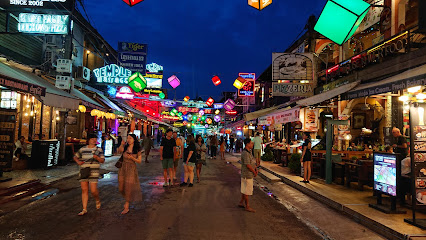
Pre Rup temple
Discover the ancient beauty and rich cultural heritage of Pre Rup Temple, a stunning historical landmark in Cambodia's Angkor Archaeological Park.
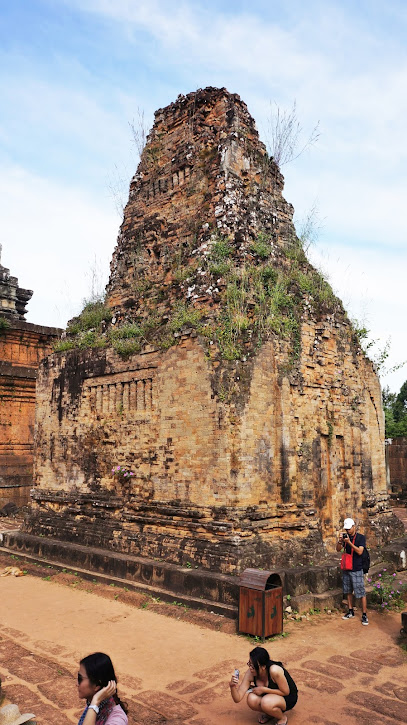
Royal Independence Gardens
Discover the serene beauty and cultural significance of the Royal Independence Gardens in Siem Reap, a perfect escape for nature lovers and history enthusiasts.
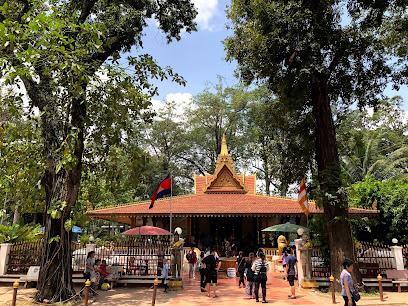
Artisans Angkor
Explore the heart of Cambodian craftsmanship at Artisans Angkor, where tradition meets artistry in a cultural haven.
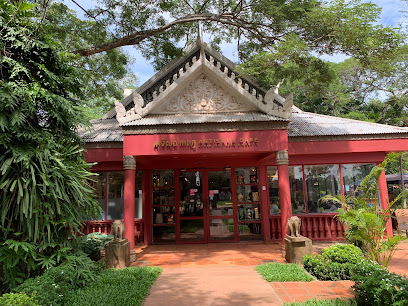
Made in Cambodia Market
Discover authentic Cambodian handicrafts and delicious local cuisine at the vibrant Made in Cambodia Market in Siem Reap, a cultural gem for every traveler.
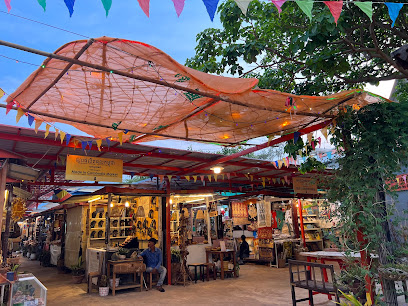
War Museum Cambodia
Discover the poignant history of Cambodia at the War Museum, a must-visit tourist attraction in Siem Reap, offering insights into the nation's past and resilience.
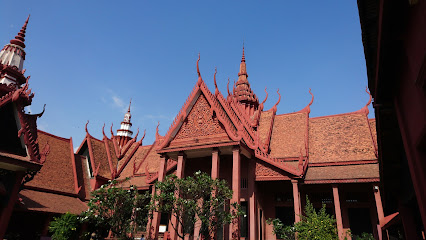
Wat Bo
Discover Wat Bo, Siem Reap's ancient Buddhist temple, adorned with vibrant murals and serene gardens, offering a peaceful cultural escape.
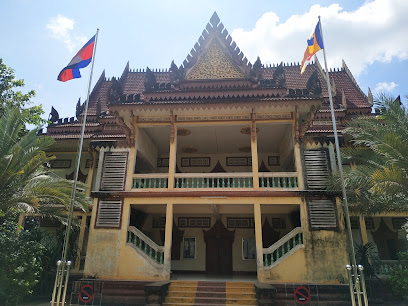
Banteay Srey Butterfly Centre (BBC)
Explore the Banteay Srey Butterfly Centre, a vibrant sanctuary showcasing thousands of butterflies in a stunning garden setting near Angkor.
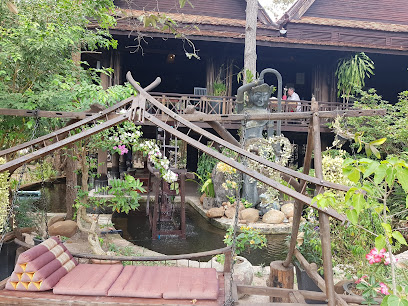
Miniature Replicas of Angkor's Temples
Discover the exquisite miniature replicas of Angkor's temples in Siem Reap, showcasing Cambodia's rich history and architectural brilliance.
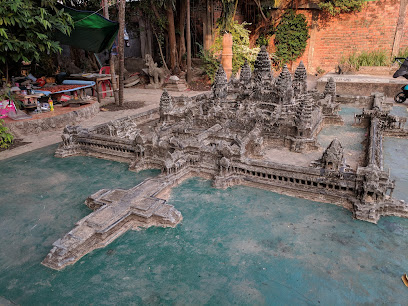
Essential places to dine
Chanrey Tree
Discover the authentic taste of Cambodia at Chanrey Tree in Siem Reap - where tradition meets culinary excellence.
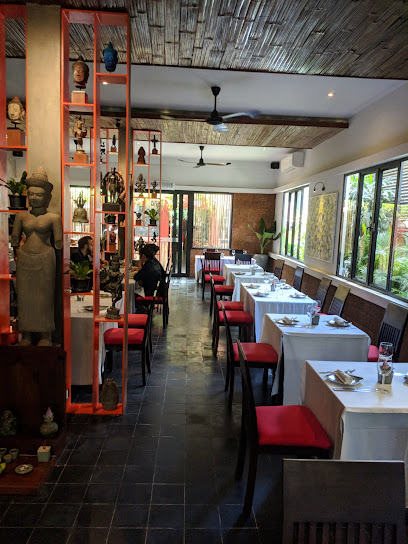
Pot & pan siem reap
Experience authentic Cambodian cuisine at Pot & Pan in Siem Reap – where family-friendly dining meets flavorful traditions.
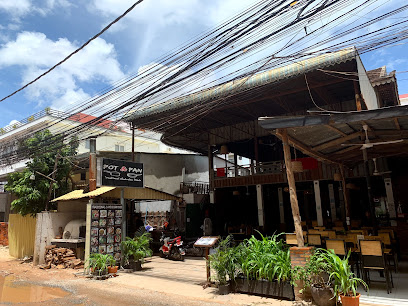
The Sugar Palm
Experience authentic Khmer cuisine at The Sugar Palm in Siem Reap - a culinary gem reflecting Cambodia's rich cultural heritage.
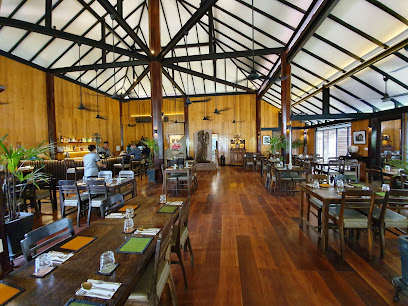
Nick Restaurant
Experience authentic Cambodian flavors at Nick Restaurant in Siem Reap—where every dish tells a story.
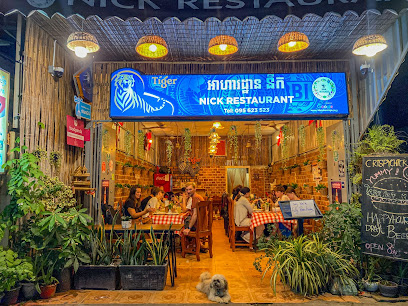
Olive Cuisine de Saison
Experience exquisite French cuisine with a Cambodian flair at Olive Cuisine de Saison in Siem Reap.
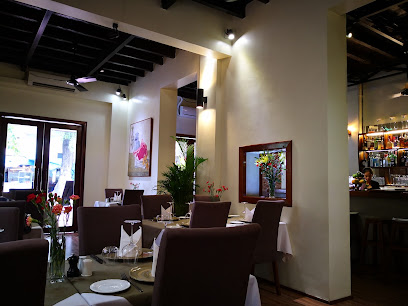
Pou Restaurant and Bar
Discover authentic Cambodian flavors at Pou Restaurant and Bar in Siem Reap - where tradition meets modern dining.
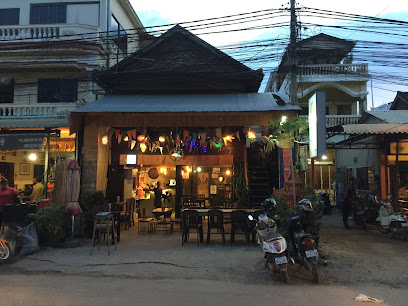
Karo Restaurant
Experience authentic Cambodian flavors at Karo Restaurant in Siem Reap—where delicious meets affordable.
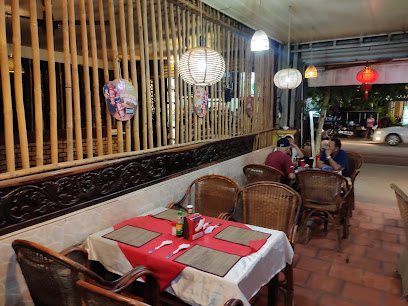
Golden Pumpkin Restaurant Siem Reap
Experience authentic Cambodian cuisine with a modern twist at Golden Pumpkin Restaurant in Siem Reap.
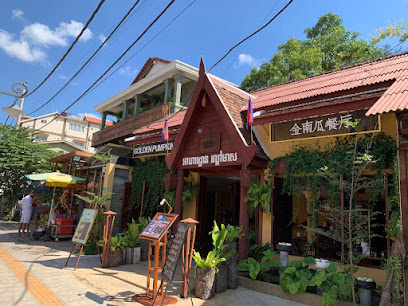
Somaha Restaurant and Wine Bar
Discover exquisite dining at Somaha Restaurant & Wine Bar in Siem Reap - where local flavors meet international cuisine in an elegant setting.
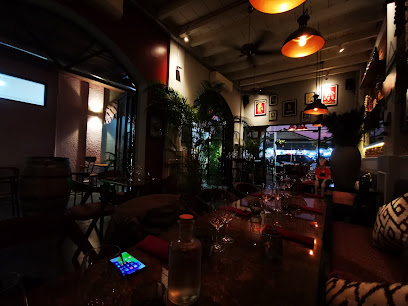
The Chef 1950 n Steakhouse - Siem Reap
Experience exquisite steaks and local flavors at The Chef 1950 n Steakhouse in Siem Reap - where culinary excellence meets vibrant ambiance.
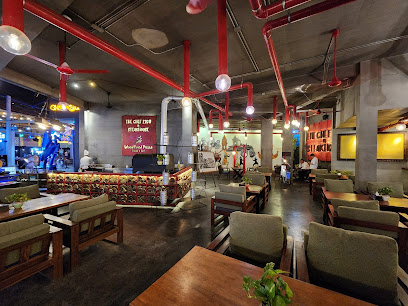
Markets, malls and hidden boutiques
Old Market
Discover the Old Market in Siem Reap, a lively hub showcasing authentic Cambodian crafts, delicious street food, and a unique shopping experience.
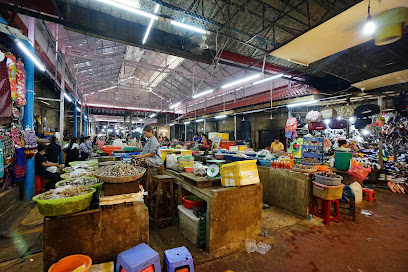
Senteurs d'Angkor (Old Market)
Discover the essence of Cambodia at Senteurs d'Angkor, your go-to gift shop in Siem Reap for authentic souvenirs and local treasures.
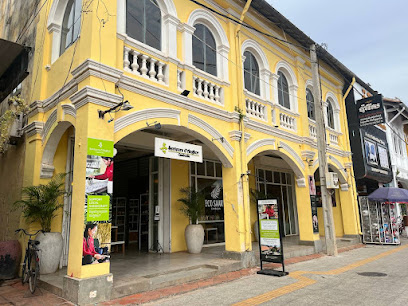
SATU Concept Store
Explore the artistic soul of Cambodia at SATU Concept Store, where handmade treasures and cultural heritage come together in Krong Siem Reap.
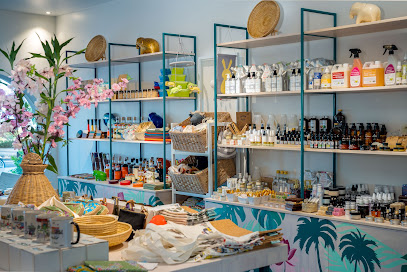
very berry
Explore the charm of Very Berry in Siem Reap, where authentic Cambodian souvenirs and gifts await to remind you of your travels.
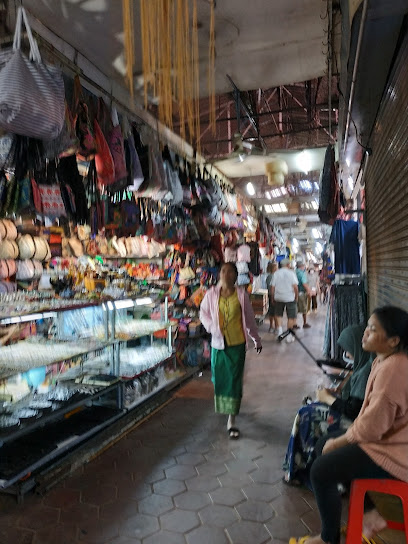
krukhmer -クルクメール -
Explore Krukhmer in Siem Reap for an authentic shopping experience of Cambodian crafts, aromatherapy, and cosmetics.
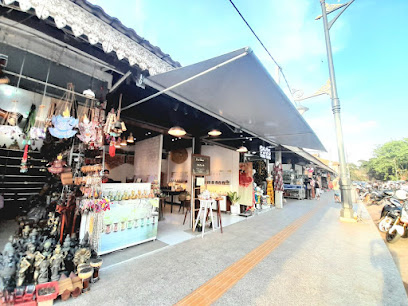
SALASUSU Old Market Shop
Explore the vibrant craftsmanship of Cambodia at SALASUSU Old Market Shop, where every item tells a story and supports local artisans.
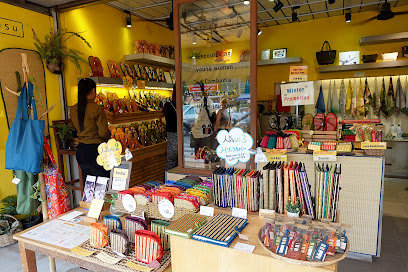
The Corner Art Shop
Explore The Corner Art Shop in Krong Siem Reap for unique paintings and handcrafted souvenirs that embody the spirit of Cambodian art and culture.
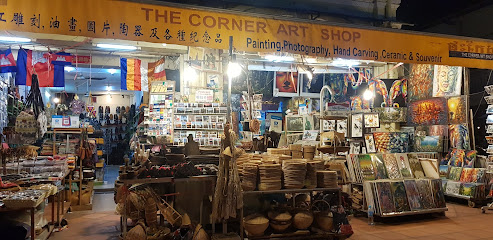
Talisma old market SIEM reap
Explore Talisma Old Market in Siem Reap for unique handicrafts and a vibrant cultural experience that reflects the artistry of Cambodia.
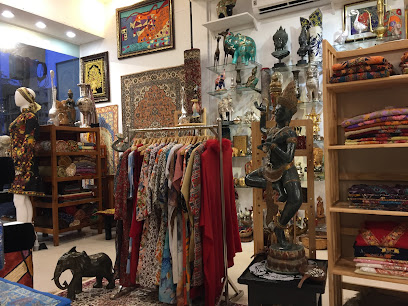
Khmer Angkor Souvenir Shop
Explore the vibrant Khmer Angkor Souvenir Shop for authentic Cambodian gifts, handcrafted treasures, and unique local art in Siem Reap.
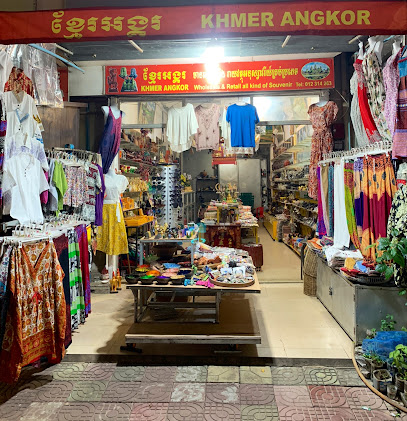
Siem Reap Market House
Explore the vibrant Siem Reap Market House for unique clothing and local crafts that celebrate Cambodian culture.

Essential bars & hidden hideouts
WILD - Creative Bar & Spring Rolls Restaurant
Discover the vibrant flavors and creative cocktails at WILD - Creative Bar & Spring Rolls Restaurant in Siem Reap.
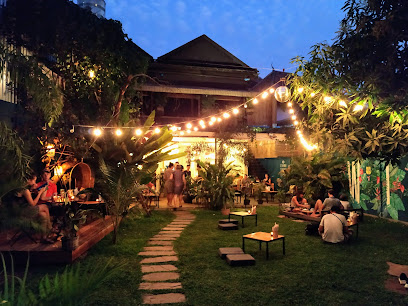
Miss Wong Cocktail Bar
Discover Miss Wong Cocktail Bar in Siem Reap, where exquisite cocktails and delectable dim sum await in a stylish and lively atmosphere.
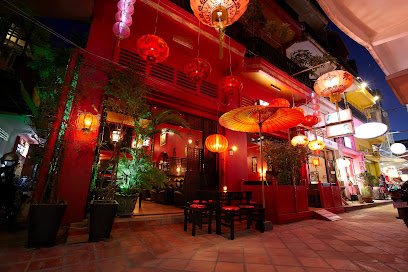
Barcode Bar Siem Reap
Unwind with a cocktail at Barcode Bar Siem Reap, where vibrant nightlife meets exceptional service in a lively atmosphere.
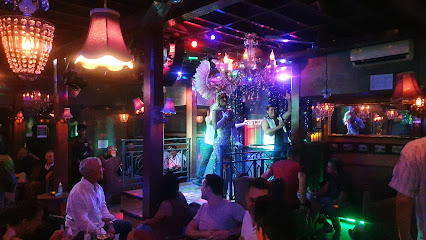
Picasso Bar
Discover the lively atmosphere of Picasso Bar in Siem Reap, where local charm meets vibrant nightlife, perfect for unwinding after a day of exploration.
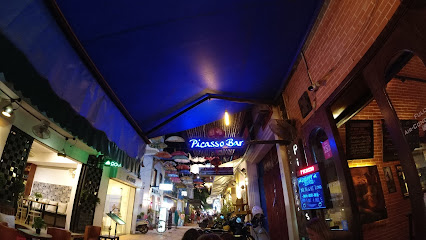
Long's Bar
Discover the vibrant nightlife and local flavors at Long's Bar in Siem Reap, where every drink tells a story.
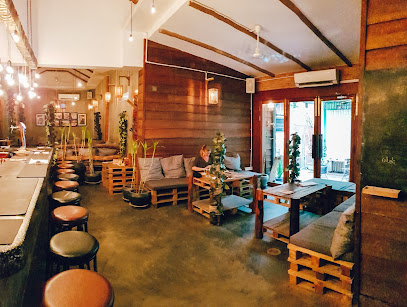
Cozy Bar
Experience the lively atmosphere and affordable drinks at Cozy Bar in Siem Reap, the perfect spot to unwind after exploring Cambodian culture.
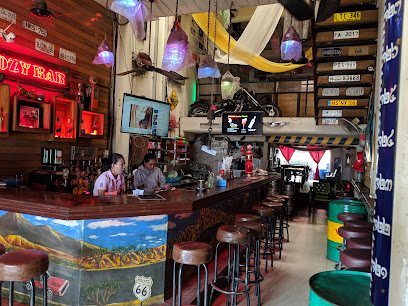
Welsh Consulate Siem Reap
Discover the vibrant atmosphere and diverse drink selection at the Welsh Consulate Pub, Siem Reap's ultimate destination for nightlife and local culture.
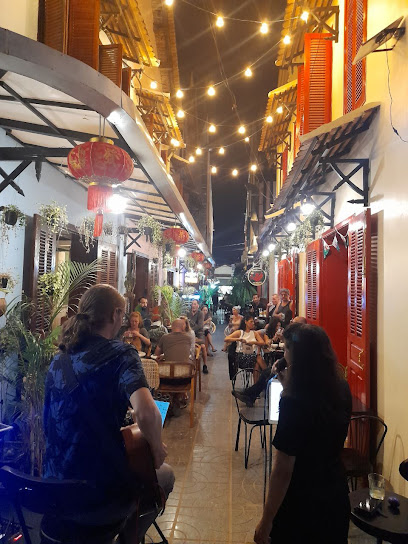
JD's Siem reap
Experience the vibrant nightlife at JD's Siem Reap, the ultimate bar for cocktails and local culture in the heart of Cambodia.
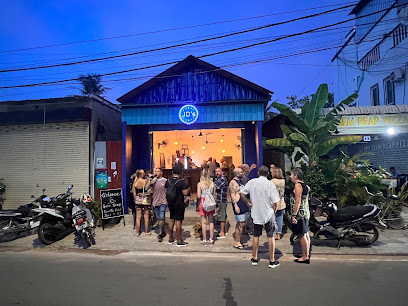
The Town Bar
Experience vibrant nightlife and refreshing drinks at The Town Bar in Siem Reap, a must-visit for tourists seeking relaxation and fun.
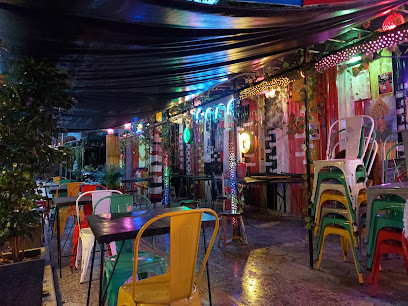
Harry’s Lounge•OldMarketLane•
Experience the vibrant cocktail scene at Harry's Lounge in Krong Siem Reap, where exquisite drinks meet a stylish atmosphere.
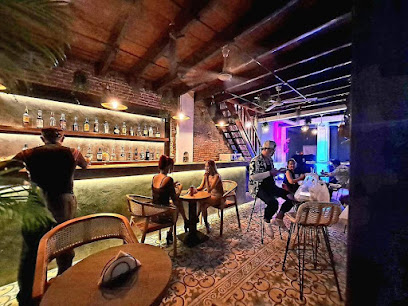
Local Phrases
-
- Helloសួស្តី
[soo-sdei] - Goodbyeលាហើយ
[leah-heuy] - Yesបាទ
[baht] - Noទេ
[teh] - Please/You're welcomeសូម
[saw-maw] - Thank youសូមអរគុណ
[saw-maw-aw-kun] - Excuse me/Sorryសូមទៅវែង
[saw-maw-tweh-waeng] - How are you?អ្នកសុខសប្បាយបានយ៉ាងដេវ?
[nak sok sabay bahn yang daw?] - Fine. And you?សុខសប្បាយយ៉ាងបាន អ្នកអេសអិយ?
[sok sabay bahn bahn, nak aisai?] - Do you speak English?អ្នកនៅទទួលខ្លួនផ្ទះអមោឃបានភាសាអង់គ្លេស?
[nak nowt doul khluon pteah omok bahn phasaa anlokles?] - I don't understandខុសមិនឃើញ
[kohmern khern]
- Helloសួស្តី
-
- I'd like to see the menu, pleaseខ្ញុំចង់មើលម៉ឺនុយបានមក
[knyom chong muel menoo bon mkaw] - I don't eat meatខ្ញុំមិនបរិយោខ
[knyom min brai hok] - Cheers!សួរ!
[sour!] - I would like to pay, pleaseខ្ញុំចង់បង់ប្រាក់បានមក
[knyom chong ban prak bon mkaw]
- I'd like to see the menu, pleaseខ្ញុំចង់មើលម៉ឺនុយបានមក
-
- Help!ជម្រះ!
[chamroh!] - Go away!លើងចេញ!
[leung chern!] - Call the Police!ហាត់ខាតែបង្ខងសម្រាប់!
[hat katey banh khong samrab!] - Call a doctor!ហាត់គាតមាន!
[hat katey katman!] - I'm lostខ្ញុំខិតបាន
[knyom khern bon] - I'm illខ្ញុំមានជម្រះ
[knyom man chamroh]
- Help!ជម្រះ!
-
- I'd like to buy...ខ្ញុំចង់ទិញ...
[knyom chong toon...] - I'm just lookingខ្ញុំជិះមួយចំពោះ
[knyom chuh moy chom poah] - How much is it?តើវាគិតបានប៉ុន្មាន?
[tweh vekh bat bonman?] - That's too expensiveនេះគឺលឿងប៉ុន្មានពិបាក
[ney khao ey bonman pibak] - Can you lower the price?តើអ្នកធ្លាក់តម្លៃបានទៅទៀតទំនើរតើ?
[tweh nak lerk tamlay bon tow tei mner tew?]
- I'd like to buy...ខ្ញុំចង់ទិញ...
-
- What time is it?ម៉ោងប៉ះម៉ោងប៉ះ?
[mawng bat mawng bat?] - It's one o'clockវាយម្សិល
[vaih msool] - Half past (10)ផ្នែកការចុងស៊ិត
[pnak hah chong sit] - Morningព្រឹក
[prook] - Afternoonល្ងាច
[lingchah] - Eveningយប់
[yob] - Yesterdayម្សិលម្សិល
[msool msool] - Todayថ្ងៃនេះ
[tngai ney] - Tomorrowថ្ងៃស្អែ
[tngai saeh] - 1មួយ
[moy] - 2ពីរ
[pii] - 3បី
[bei] - 4បួន
[buon] - 5ប្រានី
[brah nee] - 6បុត
[bot] - 7ប៉ែត
[bayt] - 8បីលាល
[bee leel] - 9កញ្ញា
[koneha] - 10ដប់
[daap]
- What time is it?ម៉ោងប៉ះម៉ោងប៉ះ?
-
- Where's a/the...?នេះត្រជាក់ជាងនេះ...?
[ney trerchak jang ney...?] - What's the address?អាសយដ្ឋានអស័យ?
[astatdan asay?] - Can you show me (on the map)?តើអ្នកអាចបង្ហាញខ្ញុំបានទេ?
[tweh nak ah chak banhaeng knyom bon teh?] - When's the next (bus)?នេះចុងបញ្ចិ៍កាមរ៉េ?
[ney chong bonjcheh kamre?] - A ticket (to ....)សេចក្តីកាយ(ទៅ....)
[sechkae kai (twai...)]
- Where's a/the...?នេះត្រជាក់ជាងនេះ...?
History of Old Market Area
-
The Old Market Area, known locally as 'Psar Chas', has roots that trace back to the Angkor period, when Siem Reap was a thriving hub for trade and commerce. With the rise of the Khmer Empire in the 9th century, the region became an essential point for merchants traveling to and from the monumental temple complex of Angkor Wat.
-
During the French colonial period in the late 19th and early 20th centuries, the Old Market Area saw significant development as the French sought to modernize Siem Reap. They established infrastructure, including roads and public buildings, which facilitated trade. The market itself evolved into a focal point for both locals and tourists, offering a glimpse into the daily life and culture of the Khmer people.
-
The Old Market Area has long served as a cultural melting pot, reflecting the diverse influences on Cambodian society. It became a gathering place for local artisans, merchants, and travelers, showcasing traditional handicrafts, textiles, and food. This vibrant atmosphere has persisted through the years, maintaining the market's role as a central cultural and economic hub in Siem Reap.
-
The Khmer Rouge regime (1975-1979) brought devastation to Cambodia, including Siem Reap. The Old Market Area, like many places across the country, witnessed a decline in its vibrant activities. Many traders and artisans were lost during this dark period, and the market struggled to recover in the years that followed.
-
In the decades following the Khmer Rouge, the Old Market Area began to revive as tourism to Angkor Wat increased. The 1990s and early 2000s saw a resurgence of local businesses catering to international visitors. Today, the market is a bustling center of commerce and culture, offering a rich tapestry of experiences that highlight both traditional Khmer culture and modern influences.
Old Market Area Essentials
-
The Old Market Area is easily accessible from various parts of Siem Reap. If you’re arriving from the Siem Reap International Airport, a taxi or tuk-tuk will take approximately 15 minutes. If you’re coming from the city center, it’s a short walk or a 5-10 minute tuk-tuk ride. Buses from nearby towns also stop at designated areas close to the Old Market.
-
The Old Market Area is compact and best explored on foot. However, tuk-tuks are readily available and can be hired for longer distances or to reach nearby attractions. Bicycles are also a popular option for tourists and can be rented from various shops in the area. Public transport options are limited, but a few local buses connect the area to other neighborhoods.
-
The Old Market Area is generally safe for tourists, but standard precautions should be taken. Avoid secluded areas at night and remain vigilant in crowded markets. Petty crimes like pickpocketing can occur, especially in busy tourist spots. It's advisable to stay away from the outskirts of the area after dark, where incidents are more likely to happen.
-
In case of emergencies, dial 117 for police assistance or 119 for medical emergencies. The local hospitals and clinics are equipped to handle most situations. Always carry a copy of your passport and emergency contacts. It’s also wise to have travel insurance that covers medical emergencies.
-
Fashion: Do wear light, breathable clothing suitable for the tropical climate; modest attire is recommended when visiting temples. Religion: Do be respectful at all religious sites; remove shoes when entering. Public Transport: Do be patient and respectful to fellow passengers; Don't use loud phones or play music in public transport. Greetings: Do greet locals with a smile and a polite 'sous-dey' (hello); Don't engage in overly casual behavior. Eating & Drinking: Do try street food and local delicacies; Don't waste food or drink in public places.
-
To experience the Old Market Area like a local, visit in the early morning when vendors set up and the area comes alive with fresh produce. Engage with local artisans and shopkeepers, who are often happy to share their stories. Visit the nearby night market for a vibrant atmosphere and excellent food options. Don’t hesitate to try local dishes like Amok or Khmer barbecue, and always bargain respectfully when shopping.
Nearby Cities to Old Market Area
-
Things To Do in Battambang
-
Things To Do in Trat
-
Things To Do in Koh Kong
-
Things To Do in Phnom Penh
-
Things To Do in Ubon Ratchathani
-
Things To Do in Kratie
-
Things To Do in Nakhon Ratchasima
-
Things To Do in Champasak
-
Things To Do in Pakse
-
Things To Do in Sihanoukville
-
Things To Do in Rayong
-
Things To Do in Koh Rong
-
Things To Do in Kampot
-
Things To Do in Kep
-
Things To Do in Pattaya








